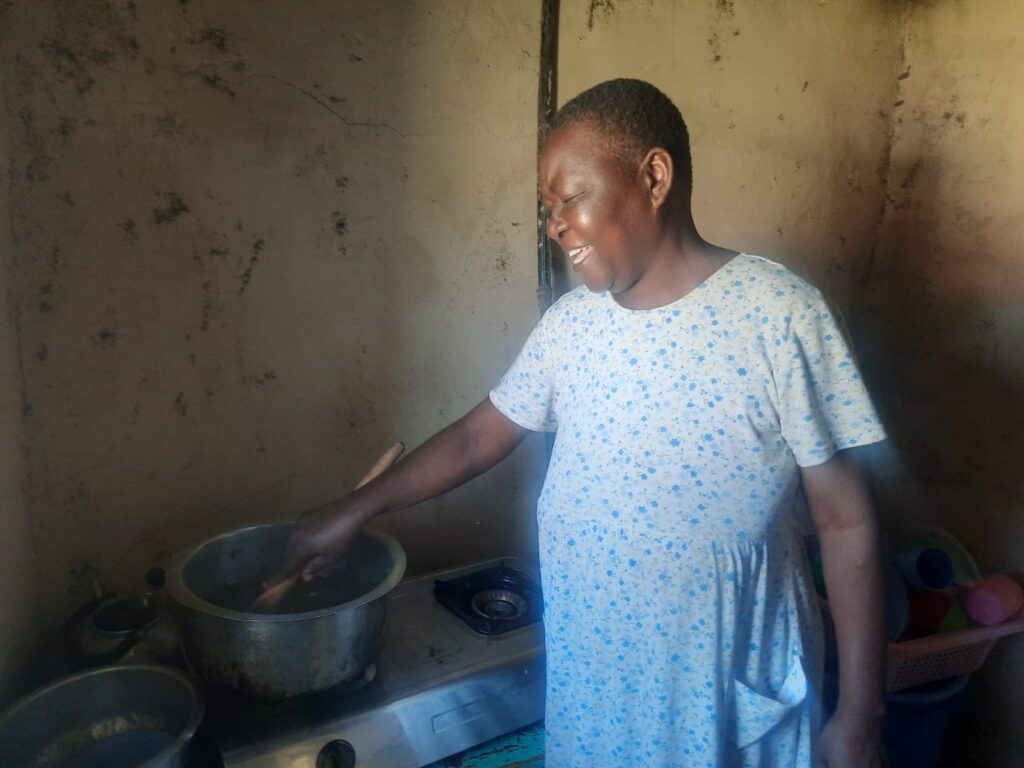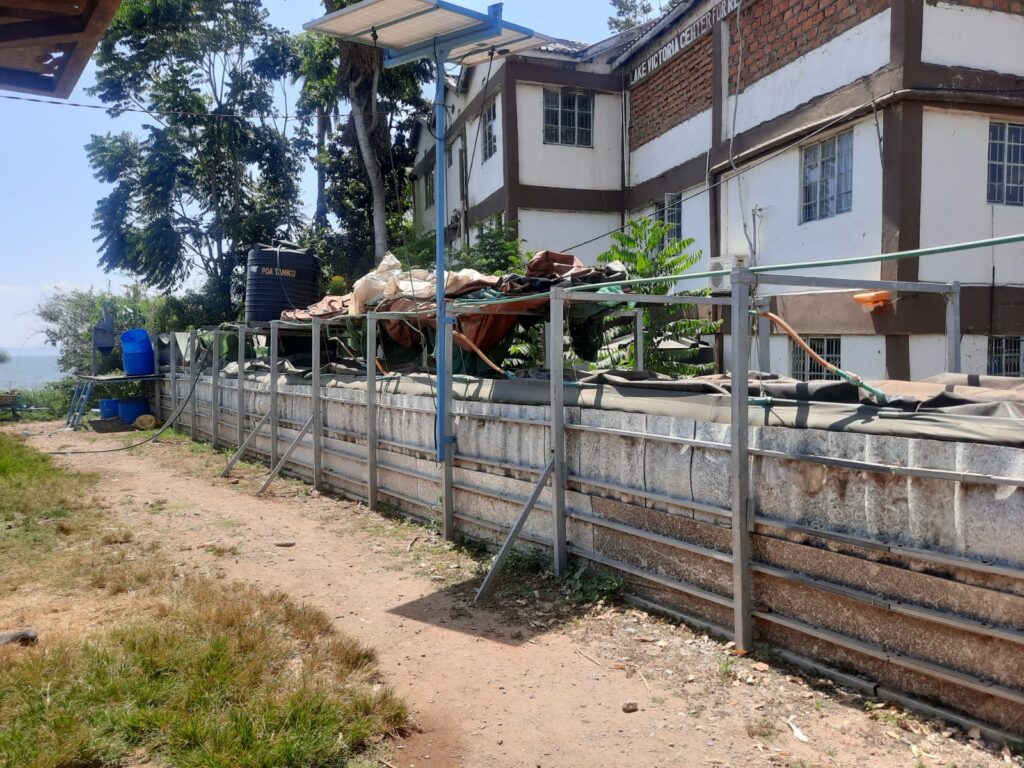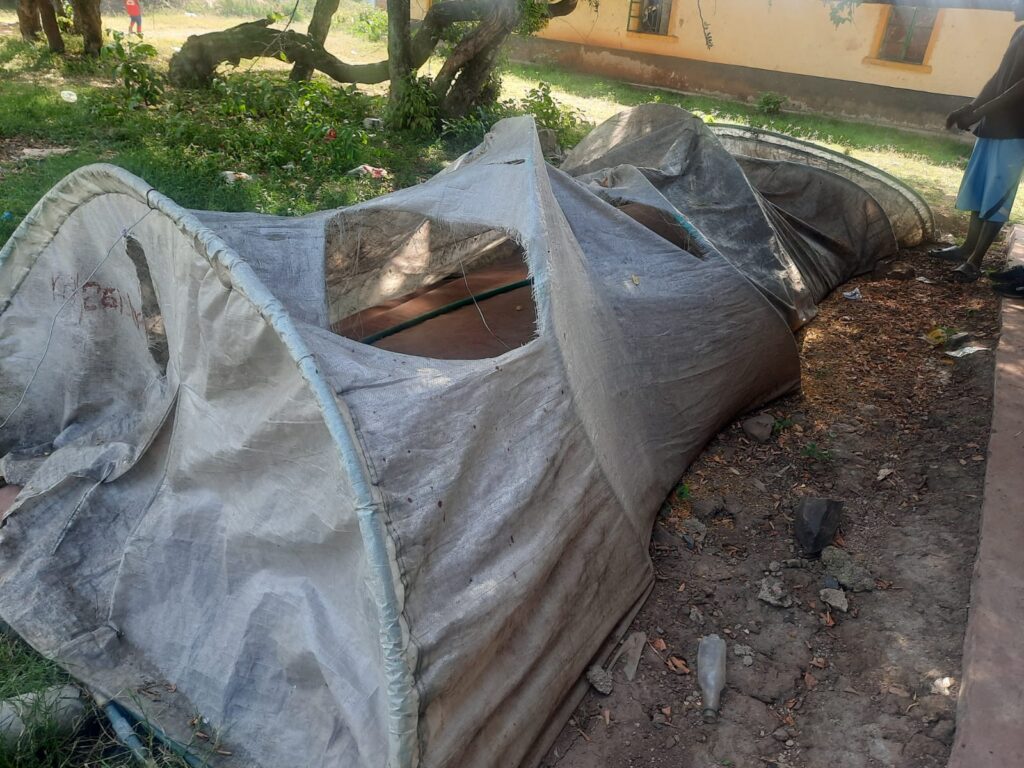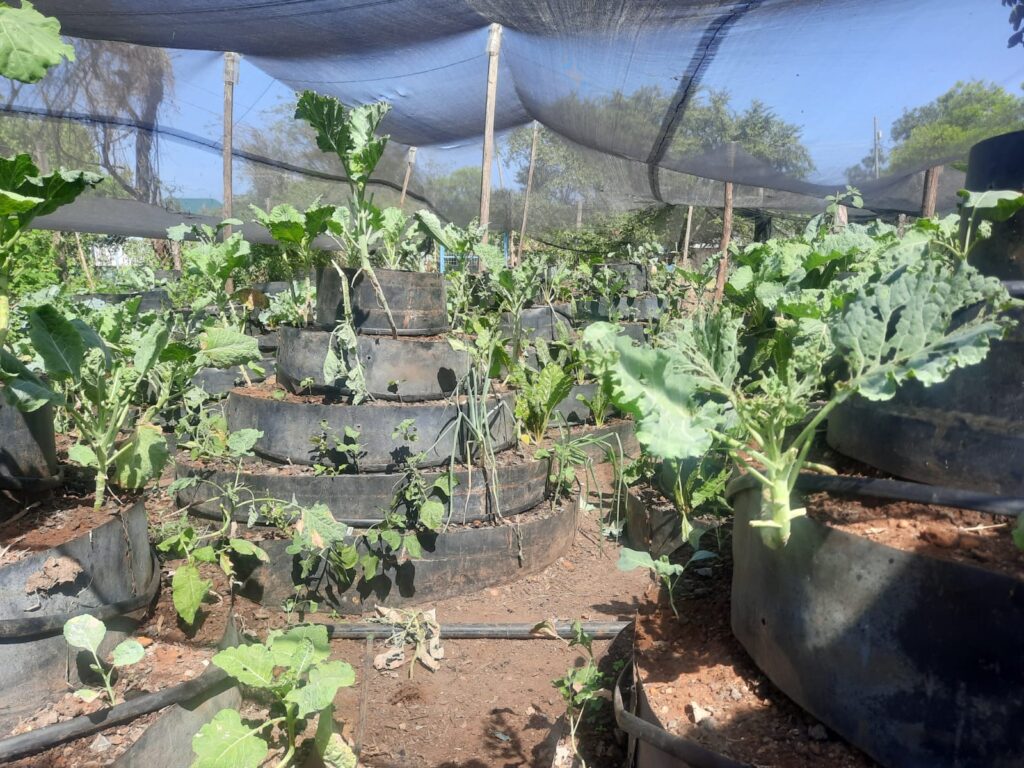Until 2018, Mary Akinyi was budgeting Sh.150 daily for purchase of either charcoal or firewood for domestic use.
Then came the cheaper and more efficient biogas and she has Sh.100 to keep.
And five years down the line, she is not thinking of going back to charcoal or firewood.
Akinyi, 53 says that since the installation of the domestic biogas plant at her home in Dunga, Kisumu her life has been better off as she uses clean fuel.
“Biogas has saved us from the chocking firewood smoke which make us have breathing problems,” she said while lighting up the gas to warm food she had prepared the previous night.

Carbon Monoxide
According to data from World Health Organization (WHO) more than three billion people globally cook with solid fuels like charcoal and traditional stoves.
This produces high levels of carbon monoxide which kills about four million people annually across the globe.
Just 300 metres from Akinyi’s home women are frying fish in stone fire pits with blackened pans as customers wait to enjoy the delicacy at a nearby restaurant.
A group of 6 fishmongers are frying fish using biogas next to the processing plant in Dunga.
The gas is transported through narrow pipes from the plant to their cooking points.
“I only spend Sh.50 per hour for only 3 hours to fry my fish per day but whenever I use firewood, I spend Sh.750 or more a day
Eunice Anyango
But their frying is different.
Unlike other fishmongers they are not chocked from the firewood smoke and their frying pans are clean.
“Frying fish with biogas is better as it is cheap and the fish is well cooked and clean,” says Eunice Anyango.
Anyango says that they make more profit while using biogas as compared to firewood.
The fishmongers buy the gas at Sh.50 per cubic metre.
One cubic metre lasts for an hour.
“I only spend Sh.50 per hour for only 3 hours to fry my fish per day but whenever I use firewood, I spend Sh.750 or more a day,” she said.
According to Anyango the only challenge they face from the gas is that it lights slowly compared to Liquid Petroleum Gas or firewood and it can only be used by few people at a time.
Biogas Production
Closer to the lake shore a noisy chaff-cutter machine is fed by a young hunched over man.
Enock Owuor is hard at work under the scorching heat, feeding water hyacinth mixed with other wastes into a pulp.
The waste is crushed by a shredder machine which cuts the waste in smaller particles which goes into the digester.
“The waste is shredded and mixed with water in ratio of 1:1 before it goes into the digester,” narrates Enock.
The digester can handle 800kg to 1 tonne of green waste and 700kg- 900kg of food waste at a time.

It is always filled with cow dung before any other waste goes in.
Many people do not sort their waste and this also comes as a challenge to us because we again have to sort the wastes
Enock Owuor
The waste takes 3-7 days in the digester.
During this time the waste mixes with the cow dung which contains anaerobic bacteria that that digests and decomposes the waste producing 80 to 90 per cent of methane gas.
The gas is transported to a storage bag at the top of the digester.
From here the gas is channelled to the kitchen through a pipe for domestic use.
Here another group of women are waiting for their grains that are being cooked at the station’s kitchen.
The waste takes between 1-2 months to come out of the digester depending on the rate at which it is fed.
Clients
Biogas International Company started the initiative in Kenya’s Lake Victoria region in 2018.
Serving more than 50 homes around Dunga beach, the company has been able to provide clean energy while getting rid of water hyacinth and other organic waste.
A standard domestic model of biogas plant which can serve a family of ten is sold and installed at Sh.80,000 within 7 days.
Their clients also receive free maintenance of biodigesters and biofuel stoves and regular refills of crushed waste to their homes.
There are a lot of policies regulating this industry, we are highly taxed by the government and end up making low or no profits at all
Enock Owuor
Owuor however says the uptake of the system is slow as many of the residents are not able to afford the systems.

When we inquire on why the cost of acquiring the system is high, he says they are highly taxed by the government.
“There are a lot of policies regulating this industry, we are highly taxed by the government and end up making low or no profits at all,” he said.
He also cites lack of enough knowledge about biogas among the locals hence the slow uptake.
Dangers of Water Hyacinth
Owuor who is the plant manager reports to his work station at Dunga Beach each morning.
He begins his day by collecting food waste discarded by local restaurants and sorts them.
We are not worried about the waste in case the water hyacinth is eradicated which I believe will take a lot of time because of its cyclic pattern of disappearance we can still use organic waste
Enock Owuor
“Many people do not sort their waste and this also comes as a challenge to us because we again have to sort the wastes,” said Owuor.
He then moves to the lakeshore where he loads up on water hyacinth.
Owour is not worried about the waste as he says the rate of pollution is high.
“We are not worried about the waste in case the water hyacinth is eradicated which I believe will take a lot of time because of its cyclic pattern of disappearance we can still use organic waste.”
According to data from the Kenya Marine and Fisheries Research Institute (KEMFRI) water hyacinth covers about 2,618 hectares of Lake Victoria.
KEMFRI scientists say that the invasive plant’s growth and decomposition results in serious oxygen depletion contributing to declining fish stocks.
The plant also hinders navigation and movement of boats in the lake and this lowers the income of fishermen in the lake.
The dense weed blankets also offer a perfect breeding ground for mosquitoes and other disease-causing insects.
Organic Farming
This alternative source of energy which eliminates the weed whose tough roots also clogs water treatment, irrigation, and water supply systems also supports organic farming.
The waste from the process which produces 45-50 cubic metres of a gas a day comes out in liquid form and can be used as manure.

Next to the plant the company also has a 200 by 100 farm under Sukuma wiki and spinach.
They have been neatly planted in well-cut plastic tanks.
The plants are deep green and shiny.
“We feed them with waste from the biogas system and they are healthy,” said Owour.
Once mature they sell the Sukuma wiki to the locals and the hotels around the lake.
